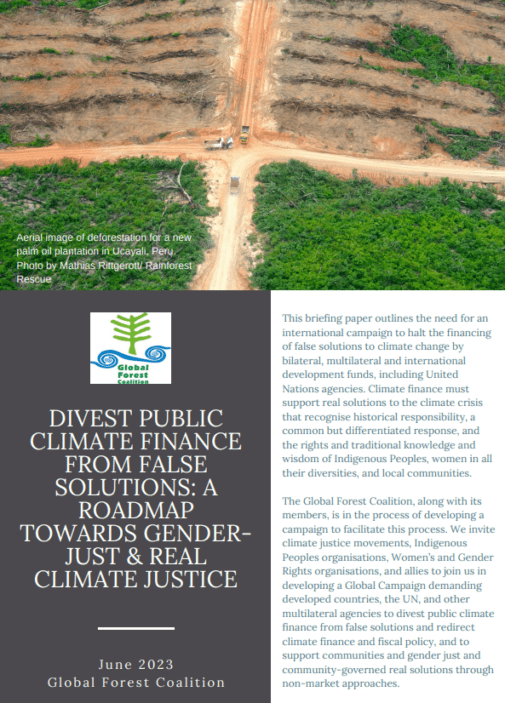Register now! Webinar | In the Shadow of Monoculture Plantations: The Urgent Need to Redirect Finance away from False Climate Solutions

In 2004, people from rural communities in Brazil came together to declare September 21 as the Day of Struggle against Monoculture Tree Plantations, to protest against the millions of hectares of land being planted with eucalyptus, pine, rubber, or oil palm for industrial purposes. Much of this industrial expansion of monocultures is still ongoing, particularly in the Global South, where communities face land grabbing, forcible eviction, and water and air pollution.
The Global Forest Coalition, as part of our efforts to support community struggles on the ground, would like to invite you all to a webinar titled In the Shadow of Monoculture Plantations: The Urgent Need to Redirect Finance away from False Climate Solutions, on this year’s Day of Struggle against Monoculture Tree Plantations, where we will hear from experts on the impacts of monoculture tree plantations in different regions. We will also discuss how so-called climate and green finance is contributing to the expansion of these harmful schemes, and why financing of false solutions and their support via subsidies and other incentives must be halted and shifted towards genuine, gender-just and rights-based solutions capable of tackling the root causes of the climate crisis.
When: September 21 at 12-1:30 UTC
Interpretation available in English, French, and Spanish
Register here: In the Shadow of Monoculture Plantations: The Urgent Need to Redirect Finance away from False Climate Solutions
Speakers
Omar Yampey, Henoi Centro de Estudios, Paraguay
Anabela Lemos, Justicia Ambiental, Mozambique
Souparna Lahiri, Global Forest Coalition, India
Hilde Stroot, Oxfam Novib, the Netherlands
Moderator: Chithira Vijayakumar, GFC
Please register now to find out more about why every monoculture plantation project is a choice to prioritise profit over the rights of Indigenous Peoples and local communities, climate mitigation potential, biodiversity conservation, and food sovereignty.








